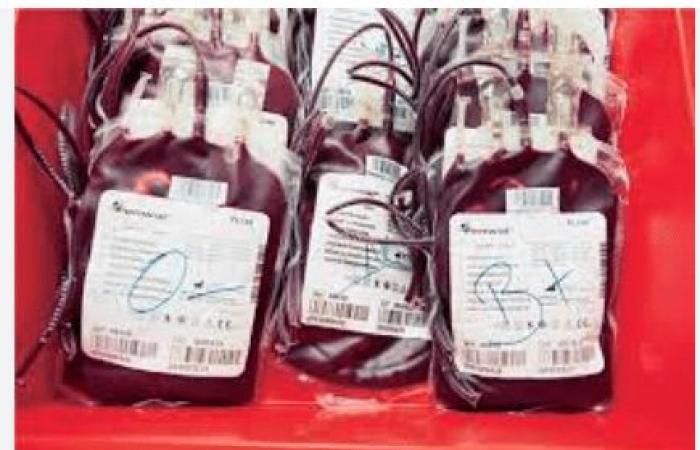Senegal is preparing to go through a critical period in terms of blood collection, coinciding with Ramadan and Lent scheduled for next March. These two periods of fasting, which will begin almost simultaneously this year, risk leading to a significant drop in blood donations, worsening an already worrying situation. Indeed, the country faces a chronic deficit of 60,000 blood bags each year, a shortage which could become more pronounced during these religious events.
According to Professor Saliou Diop, director of the National Blood Transfusion Center (CNTS), Senegal needs 170,000 blood bags annually to cover national needs. However, in 2021, only 110,000 bags could be collected. This persistent deficit endangers the care of patients requiring transfusions, in particular women suffering from postpartum hemorrhage, anemic children and people who are victims of accidents or chronic illnesses. The CNTS, responsible for the collection, processing and distribution of blood products, must regularly launch calls for donations to fill these gaps. However, this year, the overlapping periods of Muslim and Christian fasting further complicates the situation. Traditionally, during Ramadan, Catholics took over organizing blood drives. However, this interfaith solidarity could be compromised this year, due to the fast observed simultaneously by the two communities. The situation highlights structural gaps in the national blood transfusion system. Although Senegal adopted a law governing blood transfusion activities in 2020, the country is struggling to implement a truly formalized national policy. According to a study conducted by Cheikh Anta Diop University, the structuring and modernization of the system are essential to guarantee the availability and safety of blood products. Some regions remain under-equipped and rely on sporadic donations, which complicates equitable access to care. The Army Health Service plays a support role by intervening in certain areas, but its capacities remain limited given the scale of the needs. Furthermore, decentralized blood centers lack adequate human and material resources to effectively respond to growing demands.
According to Mohamed Cissé, active member of the Blood Donors Association, calls for immediate measures to avoid a major crisis. It proposes the intensification of awareness campaigns and the establishment of mobile blood collections adapted to fasting periods. These initiatives could include special time slots, particularly before the start of the fast or after the break, to maximize donor participation. The involvement of local authorities, religious leaders and community organizations is also crucial. Partnerships with businesses, schools and universities could help diversify donation sources and increase public awareness. Additionally, token incentives or benefits, such as free health checkups for regular donors, could encourage continued participation. The need for blood products is particularly crucial to combat severe anemia and hemorrhages, which are among the main causes of maternal and infant mortality in Senegal. Each bag of blood can save several lives, hence the urgency of mobilizing the population around this act of national solidarity. Faced with this situation, Senegal is at a turning point. Solving this problem requires a long-term vision, including investments in infrastructure, staff training and educating populations on the importance of blood donation. As Denise Zarour Medang points out in an article published by Sud Quotidien, it is imperative to review the national strategy to prevent a health crisis linked to the blood shortage.
Senegal





